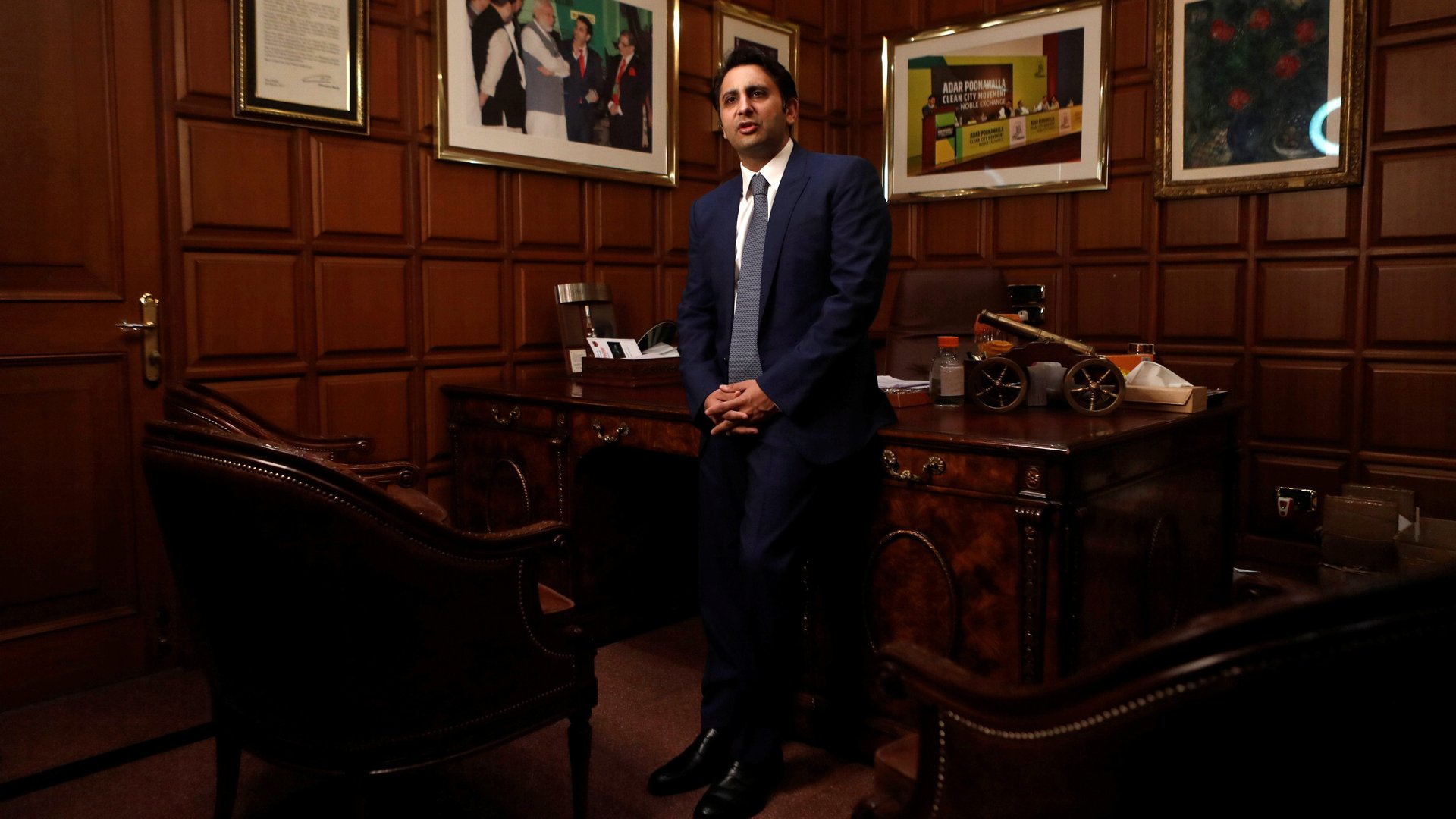Why Africa feels let down by India’s largest Covid-19 vaccine maker
Africa is not pleased about how one of the world’s largest producers of covid-19 vaccines has conducted itself.


Africa is not pleased about how one of the world’s largest producers of covid-19 vaccines has conducted itself.
Serum Institute of India (SII), which manufactures the AstraZeneca vaccine in the country under the Covishield brand, let the continent down, according to the head of its health agency Centers for Disease Control (CDC).
The company and its CEO, Adar Poonawalla, have positioned themselves at the forefront of global vaccination programmes. Yet, conversations between the Africa Vaccine Acquisition Team (AVATT) and SII abruptly ended, Africa CDC said yesterday (Dec. 9).
“Serum just decided to act in a very unprofessional manner and stop communicating with the AVATT team. So, that created a situation where we found ourselves extremely unhappy…and then engaged with Johnson & Johnson,” John Nkengasong, the head of Africa CDC, told Reuters.
The Africa CDC was responding to SII’s contention that African nations were failing to place orders for vaccines.
Poonawalla blames African nations
Poonawalla had claimed there was a lack of cohesive political action on the vaccine front.
“It’s a combination of vaccine hesitancy and nations not coming forward and placing orders in the way in which they claim they would, particularly the African nations. I’m happy to say that on record and I hope they read it because maybe they’ll get activated and do something about it,” he told The Times London (paywall) in an interview on Dec. 5.
He contended that instead of supply-side bottlenecks experienced earlier this year, it was now about funding.
“Everywhere I hear the World Health Organization (WHO) and others talking about vaccine inequality, but the African nations are refusing to place orders. We’ve barely got 20 million doses worth of orders from the African nations,” Poonawalla said. “They’re going very slow, claiming that they’re waiting for donations from the US and other reasons. So there’s a bit of a disconnect.”
But the Africa CDC has blamed SII’s conduct during negotiations to place orders for the vaccine for this. SII did not respond to Quartz’s email.
Vaccine inequality, especially in Africa has become an urgent issue from a global health perspective after the emergence of the new omicron variant. Only about 8% of the continent’s population of 1 billion has been fully vaccinated against covid-19, according to Our World in Data.
Now, countries with more vaccines than they can use are sending doses to African nations. While this may seem helpful on the face of it, experts have criticised developed countries for sending doses so close to the expiry date and without enough legroom to plan and an effective roll-out.
Covishield and Covax
The AstraZeneca vaccine is more suited for supply to low- and middle-income countries because it could be stored at temperatures suitable for other vaccines. The mRNA vaccines, on the other hand, need a logistics overhaul, given the ultra-cold storage they require.
SII, the largest supplier of Covishield, was key to the success of Covax, the global vaccine-sharing initiative. But its contracts with the international coalition were compromised by a particularly virulent phase of the pandemic in India.
Since March, when the delta variant wave began sweeping India, Serum Institute has had to focus on domestic demand.
“Obviously, we’re Indian and whatever the nation needs, it should have, but we were so worried about what was going to happen in [countries in] Africa, South America and the places that didn’t have any vaccines because we’d already said we’d send it out,” Natasha Poonawalla, executive director of SII and the CEO’s wife, told fashion magazine Vogue in an interview on Dec. 7. “Our hands were tied. We thought, ‘Are we doing the right thing?’”
Adar Poonawalla even temporarily relocated to London in May, citing threats to his life apparently from those in India who felt they deserved the vaccines ahead of the others.
By September, though, the government lifted its unofficial ban on vaccine exports and allowed manufacturers like SII to fulfil their international commitments.
Serum Institute of India’s supply woes
SII had begun producing Covishield in late 2020, months before it was cleared for use in any country. A part of this was at-risk production, and the other was funded by a $300 million grant from the Bill & Melinda Gates Foundation and Covax.
Yet it could not immediately meet the demand surge in 2021. This appears to have done significant damage to the Serum Institute’s global standing, despite a sizeable improvement in supply subsequently.
By now, however, Covishield supply far outstrips both local and international demand. Since neither the Indian government nor Covax members have placed enough fresh orders, it may even cut down production by 50%.
“There is more supply, in the short term, than countries can absorb on a monthly basis. I don’t think there’s a single country that needs more vaccine but can’t get it,” he told The Times.
But Nkengasong of Africa CDC said it felt let down.
“If now Serum is shipping vaccines to Covax, I don’t know the mechanics of what volumes they are shipping to Covax, but it will not surprise me that countries are now looking at that (thinking) ‘OK, we needed you and you were not there for us’,” he said.